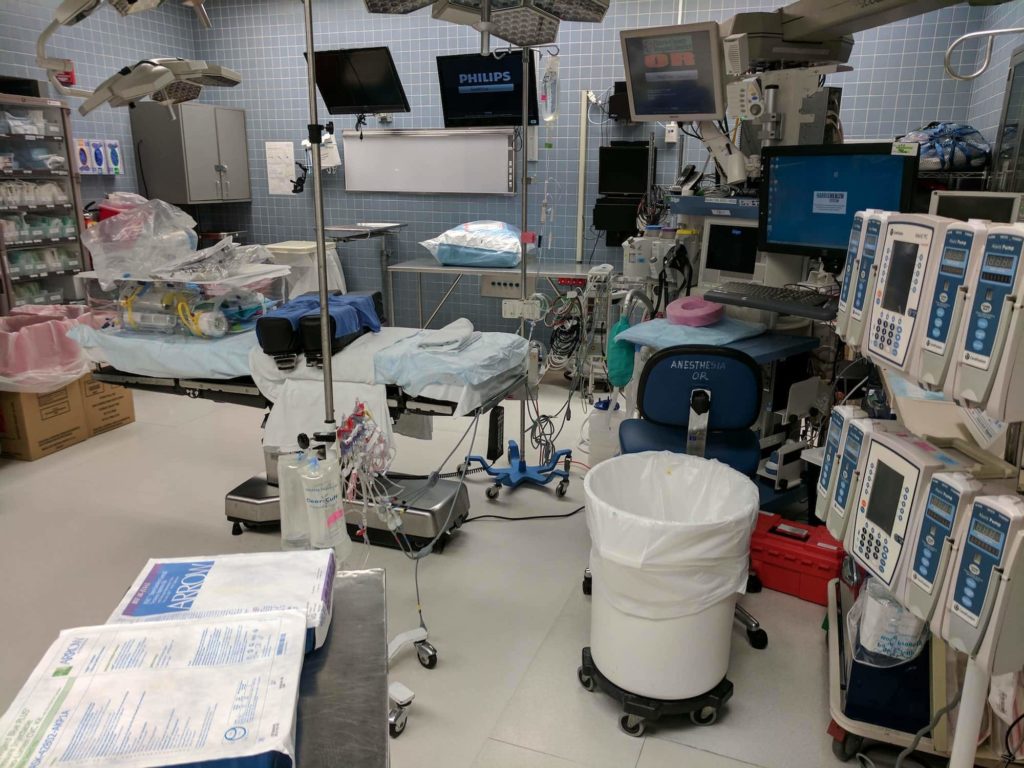It’s customary for medical students interested in a particular field to enroll in “electives” to get experience, understand the workflow, obtain recommendation letters for residency applications, etc. I get asked all the time about how to “stand out” on anesthesia electives, so here are some tips!
RECOMMENDATION LETTERS
If you have the intention of getting a recommendation letter out of your rotation, it’s best to schedule an informal meeting with the program director ahead of time. You’ll likely work with different attendings/fellows/residents each day. By asking early, staff will have concrete examples to include in their cumulative feedback. Typically, the recommendation letters are a collective effort comprised of comments from most people you work with.
WORKFLOW/PROCEDURES
Until people actually do an anesthesia elective, they don’t realize how fast-paced this field can be. Turning over a room, transporting patients between the pre-operative area, post-anesthesia care unit (PACU), and intensive care unit (ICU), writing a pre-operative note, getting back to the room with the patient, placing necessary lines/monitors, getting through the induction process safely… this happens very quickly! Often times medical students don’t really understand what their role is during this frenzy.
For longer surgeries, there will invariably be a period of “maintenance” which is usually less stressful. This is the time I enjoy teaching students about monitors, medications, surgical considerations, mechanical ventilation, etc. Many equate performing a general anesthetic to flying an airplane: things are fast-paced during take-off (induction) and landing (emergence), but fairly stable during autopilot (maintenance). Save most of your questions for when things are idle!
You can hear some of these tips and more in my YouTube video below!
Drop me a comment with questions below! 🙂







Hello there,
I’m a Flight Paramedic in NW Washington. I had great experiences during my clinical rotations in OR with Anesthesia. You all are great teachers and patient. What kind of advice do you have for us in the field doing these similar procedures?
Hey Robert! I’m glad you had a great experience. Honestly, I have undying respect for what you all do in the field with more limited resources and in non-ideal situations (ie, on a helicopter/plane, lol). I would say it comes down to knowing how to maximize the utility of the equipment you DO have (which requires having a mental inventory of everything in your arsenal) and constantly thinking of “worst case scenarios” and how you would utilize said inventory.
What about IMGs, who apply for specific electives in attempt to acquire LORs to pursue US residency spots in the future? Any tips on how to manage the LORs, pre-elective preparation etc?
What are IMGs expected to know and what are they expected to do? Especially if one is not very sure about one’s skills and knowledge due to different training one gets in one’s own country
As far as I understand from here, you are saying it is not necessary to stand out in a cartoony way, by being that know-it-all, but is it necessary for IMGs to stand out in any particular way aside from basic professionalism and curiosity?
Since I’m not an IMG, I don’t have personal experience with this process, but I’d surmise that these tips still apply in the same way. It’s not like a third year medical student (non-IMG) is incredibly proficient at placing peripheral IVs or intubating right off the bat either. The whole concept of “standing out” is also very subjective. I might look at things differently compared to another attending. At the end of the day, just being a team player and showing, as you said, basic professionalism/curiosity goes a LONG way for EVERYONE. 🙂
Thank you for your quick reply (like the new website design btw)
I have one more a little off-topic question: Is it necessary to have all LORs to be from anesthesiology electives/rotations in order to be accepted as a resident?
AFAIK most students apply to at least 2 specialties in different spots so how exactly does one manage this?
Thanks! The new design is still a work in progress! 🙂
You definitely do not need ALL your letters to be from anesthesiologists. I’d argue diversity is helpful! I had letters from a surgeon and a pediatrician to accompany the letter from my anesthesiology program director.